Elevate your preparation for Adult Health II – Exam 1 with this all-inclusive study guide tailored for nursing students and healthcare professionals. This comprehensive resource delves into the essentials of professional nursing, foundational health concepts, and the most prevalent health problems affecting older adults. It covers critical topics such as gerontological nursing principles, age-related physiological changes, chronic disease management, and patient-centered care strategies. Designed to align with current clinical standards, the guide offers detailed explanations, case studies, and practice questions to reinforce understanding and application of knowledge. With a focus on evidence-based practice, this study guide equips learners with the tools to excel in their exams and provide compassionate, effective care to older adults in diverse healthcare settings.
Preview
1. A nurse wishes to provide client-centered care in all interactions. Which action by the
nurse best demonstrates this concept?
a. Assesses for cultural influences affecting health care
b. Ensures that all the clients basic needs are met
c. Tells the client and family about all upcoming tests
d. Thoroughly orients the client and family to the room – – correct ans- -a. Assesses for
cultural influences affecting health care
Competency in client-focused care is demonstrated when the nurse focuses on
communication, culture, respect, compassion, client education, and empowerment. By
assessing the effect of the clients culture on health care, this nurse is practicing client
focused care. Providing for basic needs does not demonstrate this competence. Simply
telling the client about all upcoming tests is not providing empowering education. Orienting
the client and family to the room is an important safety measure, but not directly related to
demonstrating client-centered care.
2. A nurse is caring for a postoperative client on the surgical unit. The clients blood
pressure was 142/76 mm
Hg 30 minutes ago, and now is 88/50 mm Hg. What action by the nurse is best?
a. Call the Rapid Response Team.
b. Document and continue to monitor.
c. Notify the primary care provider.
d. Repeat blood pressure measurement in 15 minutes. – – correct ans- -a. Call the Rapid
Response Team.
The purpose of the Rapid Response Team (RRT) is to intervene when clients are
deteriorating before they
suffer either respiratory or cardiac arrest. Since the client has manifested a significant
change, the nurse should call the RRT. Changes in blood pressure, mental status, heart
rate, and pain are particularly significant.
Documentation is vital, but the nurse must do more than document. The primary care
provider should be notified, but this is not the priority over calling the RRT. The clients blood
pressure should be reassessed frequently, but the priority is getting the rapid care to the
client.
3. A nurse is orienting a new client and family to the inpatient unit. What information does
the nurse provide to
help the client promote his or her own safety?
a. Encourage the client and family to be active partners.
b. Have the client monitor hand hygiene in caregivers.
c. Offer the family the opportunity to stay with the client.
d. Tell the client to always wear his or her armband. – – correct ans- -a. Encourage the client
and family to be active partners.
Each action could be important for the client or family to perform. However, encouraging
the client to be active in his or her health care as a partner is the most critical. The other
actions are very limited in scope and do not provide the broad protection that being active
and involved does.
nurse best demonstrates this concept?
a. Assesses for cultural influences affecting health care
b. Ensures that all the clients basic needs are met
c. Tells the client and family about all upcoming tests
d. Thoroughly orients the client and family to the room – – correct ans- -a. Assesses for
cultural influences affecting health care
Competency in client-focused care is demonstrated when the nurse focuses on
communication, culture, respect, compassion, client education, and empowerment. By
assessing the effect of the clients culture on health care, this nurse is practicing client
focused care. Providing for basic needs does not demonstrate this competence. Simply
telling the client about all upcoming tests is not providing empowering education. Orienting
the client and family to the room is an important safety measure, but not directly related to
demonstrating client-centered care.
2. A nurse is caring for a postoperative client on the surgical unit. The clients blood
pressure was 142/76 mm
Hg 30 minutes ago, and now is 88/50 mm Hg. What action by the nurse is best?
a. Call the Rapid Response Team.
b. Document and continue to monitor.
c. Notify the primary care provider.
d. Repeat blood pressure measurement in 15 minutes. – – correct ans- -a. Call the Rapid
Response Team.
The purpose of the Rapid Response Team (RRT) is to intervene when clients are
deteriorating before they
suffer either respiratory or cardiac arrest. Since the client has manifested a significant
change, the nurse should call the RRT. Changes in blood pressure, mental status, heart
rate, and pain are particularly significant.
Documentation is vital, but the nurse must do more than document. The primary care
provider should be notified, but this is not the priority over calling the RRT. The clients blood
pressure should be reassessed frequently, but the priority is getting the rapid care to the
client.
3. A nurse is orienting a new client and family to the inpatient unit. What information does
the nurse provide to
help the client promote his or her own safety?
a. Encourage the client and family to be active partners.
b. Have the client monitor hand hygiene in caregivers.
c. Offer the family the opportunity to stay with the client.
d. Tell the client to always wear his or her armband. – – correct ans- -a. Encourage the client
and family to be active partners.
Each action could be important for the client or family to perform. However, encouraging
the client to be active in his or her health care as a partner is the most critical. The other
actions are very limited in scope and do not provide the broad protection that being active
and involved does.
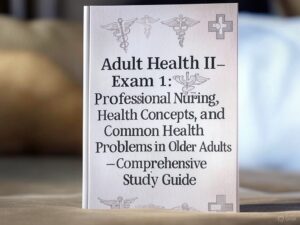
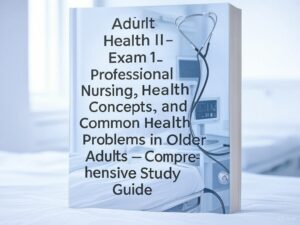


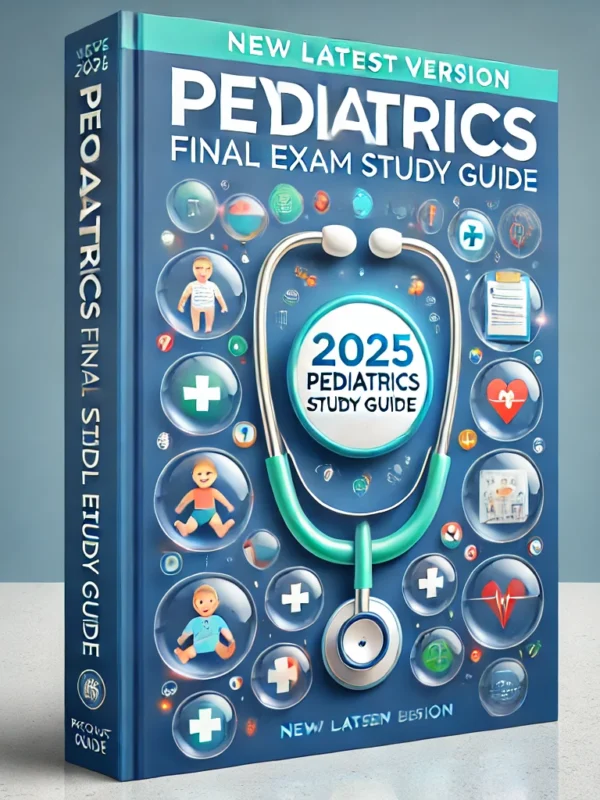
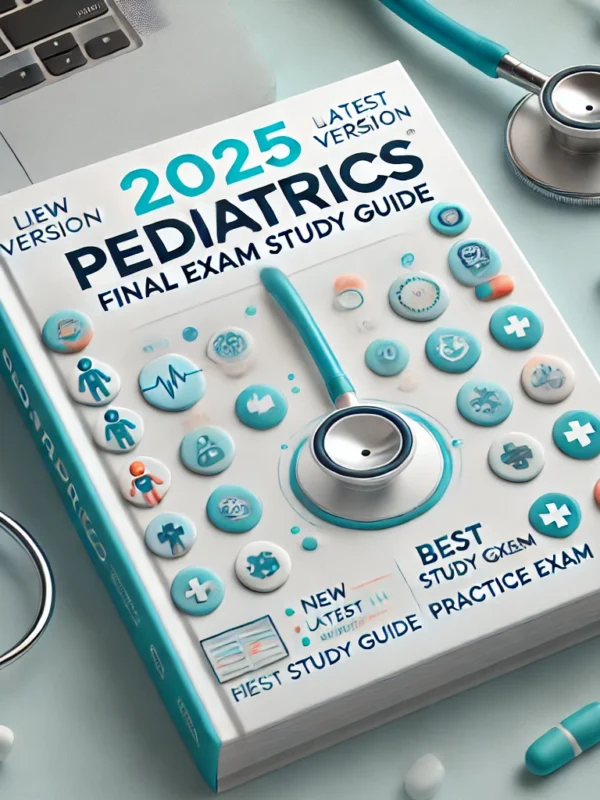
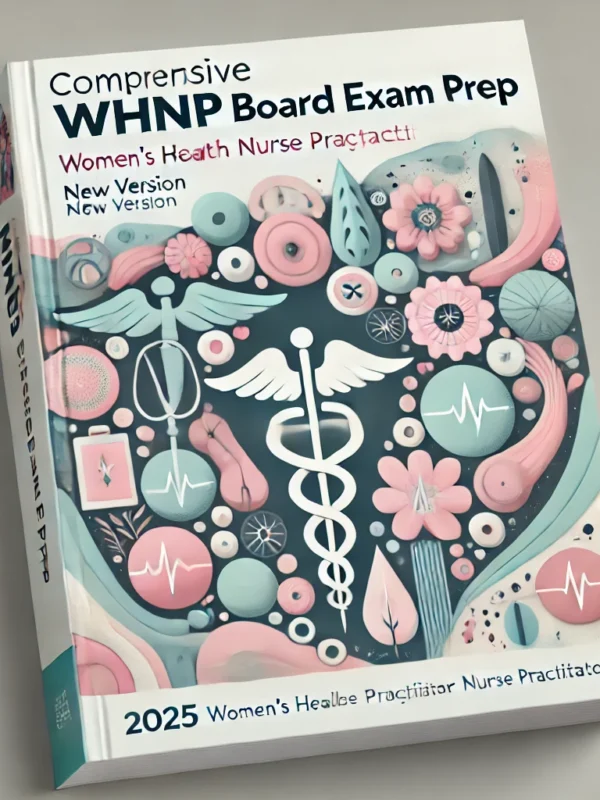
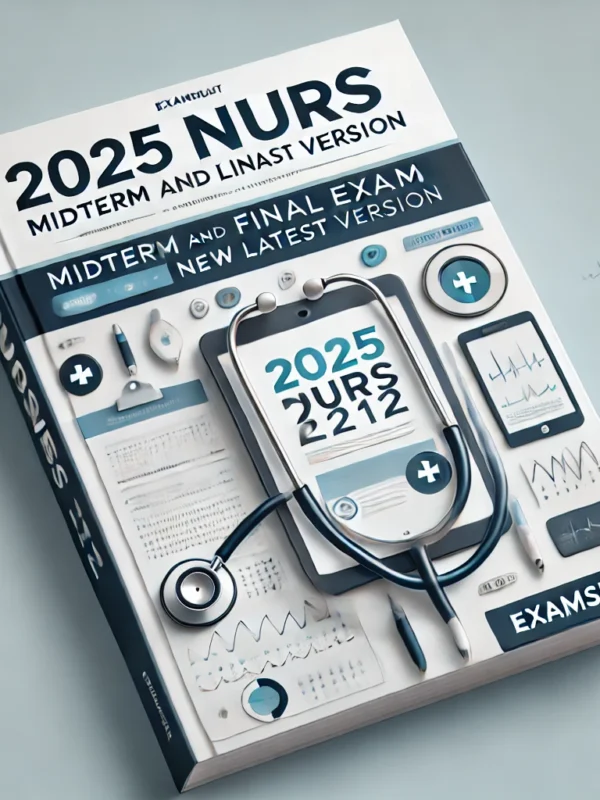
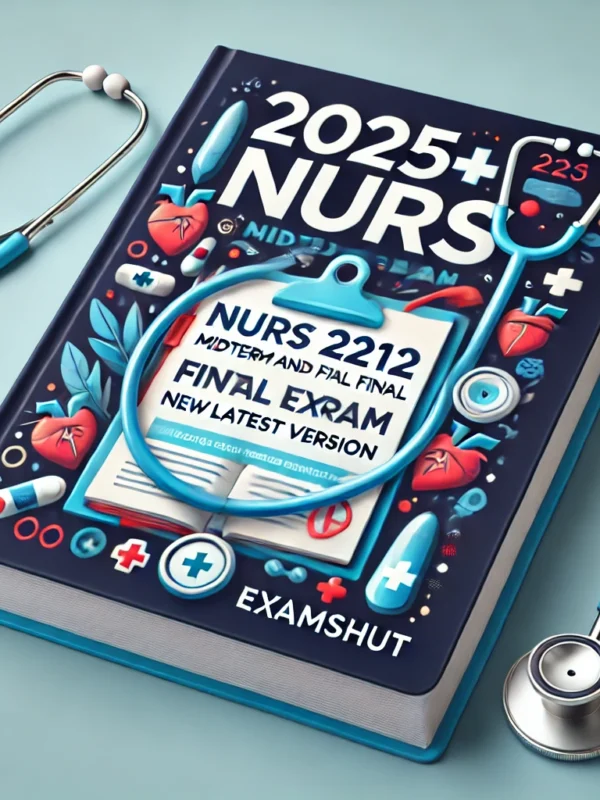
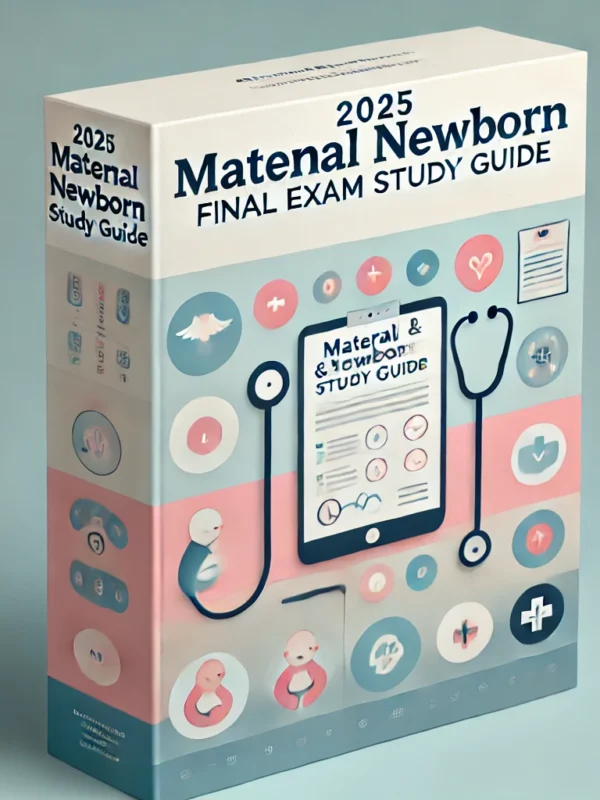
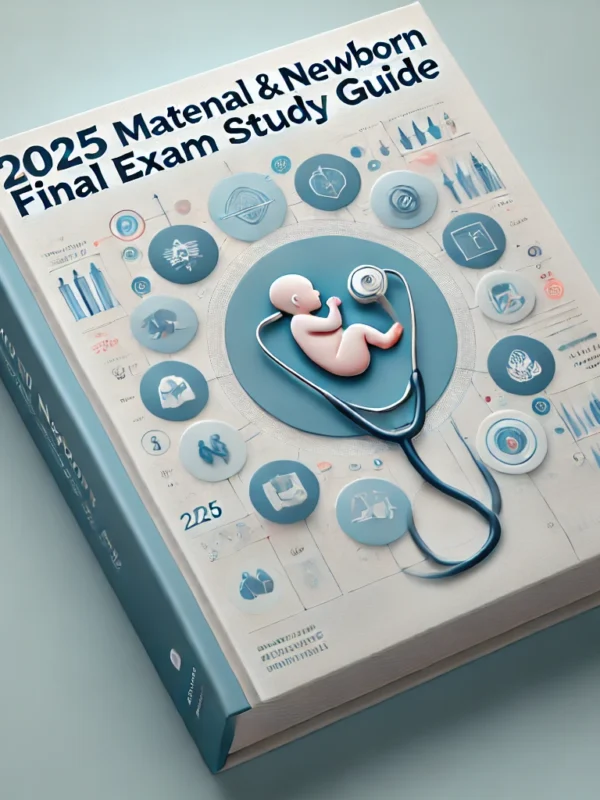
Reviews
There are no reviews yet.